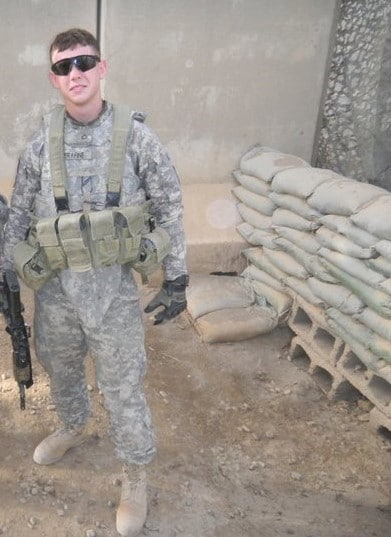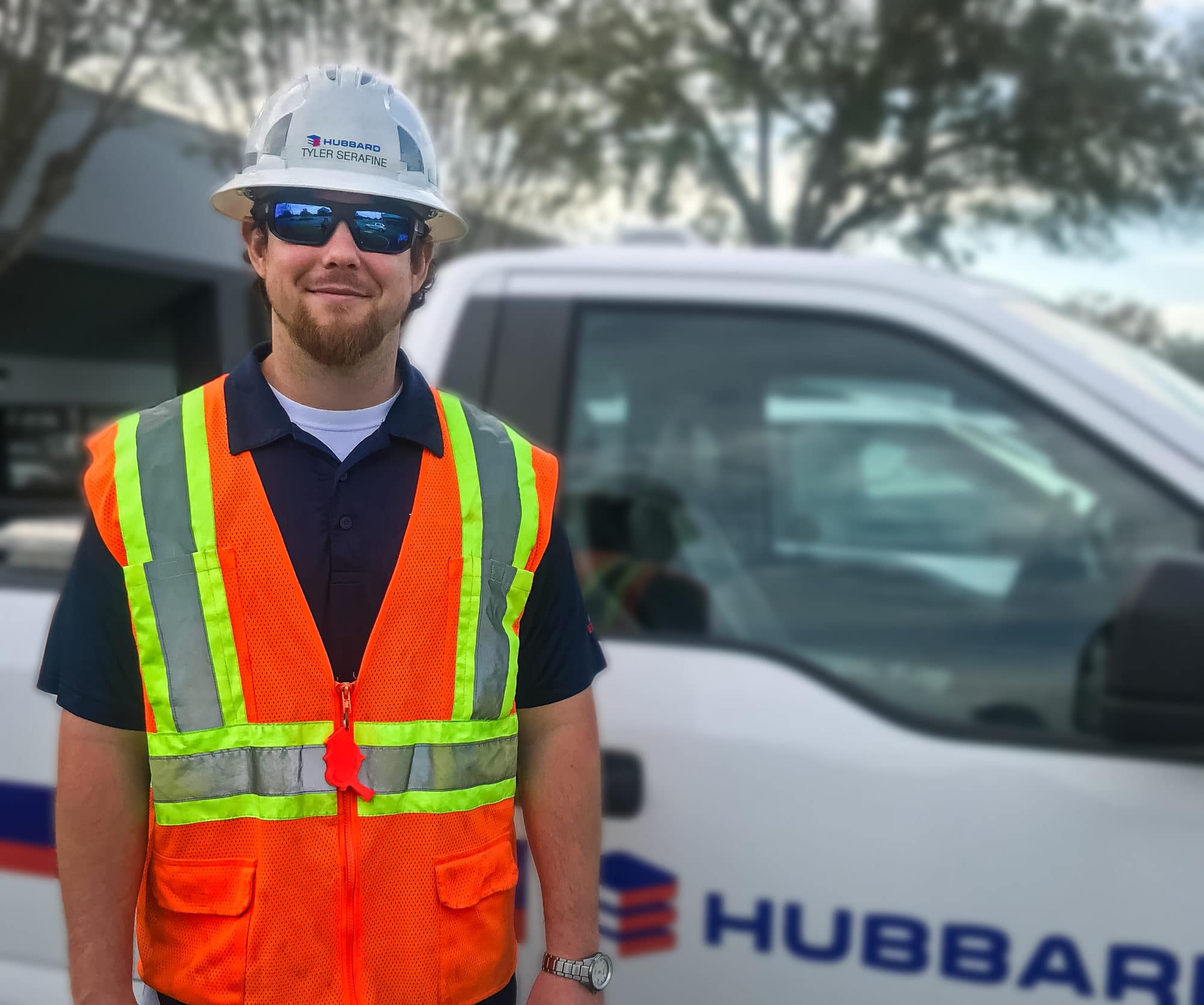Tyler Serafine served for three and a half years in the United States Army prior to starting his career with Hubbard in 2016. His military service included a tour of duty in Baghdad, Iraq. After spending many restless days and nights overseas, Tyler says that “eating a bowl of Fruity Pebbles and getting plenty of sleep” were some of the simple pleasures he missed most. He is now enjoying civilian life with his wife and eight-month-old son, with a daughter on the way. A project Manager in Hubbard’s private works division, Tyler and his team are currently working to complete Phase I of the Universal 801 Project in Orlando.
Name: Tyler Serafine
Job Title: Project Engineer
Years w/ Hubbard: 3.5 years
Military Branch: United States Army
Years of Service: 3.5 years
Q: What originally motivated you to join the military? Was it something you always thought of doing, or did you happen into it unexpectedly?
A: My motivation came from wanting to be a part of something bigger than myself and being able to protect our nation.
Q: Had you worked in the construction industry before joining the military? Which aspects of your military experience led you to consider a career with Hubbard? At the time, were you aware of any similarities between the two institutions?
A: To answer the first question, yes, my family owns a residential fence company. In high school, I spent my weekends and most of the summer working with the crews installing fences.
After my service I knew I was ready for college and to start a career. To be honest, construction seemed the most fitting to my personality. The other options were being a police officer or firefighter, but we all know those men and women don’t get the pay they deserve.
“Was I aware of the similarities of construction and military service?”
It was about a couple weeks into my internship with Hubbard that I recognized the similarities. The project management teams like PMs and engineers are similar to officers, controlling and driving the operation as a whole. The superintendents and foremen are similar to sergeants, leading the field operations, tending to the day-to-day.
Q: Military life is known for being highly structured and organized, with a clearly defined hierarchy of leadership to manage operations—not unlike a construction team. In what ways do you think your military experience prepared you for success in a construction environment?
A: My military experience prepared me for so many things, not only in my personal life, but professional as well. For example, timeliness is huge in the military. Being on-time, which actually meant 15 minutes prior—that was the expectation. Also, enduring difficult situations and reacting under stress/pressure. The actual events that I’ve experienced in both the Army and Hubbard are drastically different, but the overall idea is very similar. Both rely on a structured process for success: identify the goal, plan and prepare for the goal, execute the goal, and finally, reflect on the execution. What did we do well? What do we need to work on?

Q: Hubbard operates according to certain core principles—leadership, teamwork, innovation, problem solving. Can you describe how veterans might be uniquely equipped to uphold and enhance these company values?
A: From the start of their military career, veterans have been ingrained with certain values that they lived day in and day out. All these values either carry over, overlap, or exceed the Hubbard principles. In my opinion, veterans are bringing to companies way more than just the tax benefit.
Q: Veterans face numerous challenges upon returning to civilian life, for example finding meaningful work, a sense of purpose, and a community of peers. In what ways has your career with Hubbard provided a solution to those challenges?
A: Working through difficult or complex activities, most of the time both, with my team and being a key part is what gives me fulfillment. Also, something worth noting is the strong comradery that the teams have at Hubbard.
Q: As a veteran, what does this national holiday mean to you personally? By comparison, do you see the need for more recognition of roadway construction workers and the service they provide? The hazards of their profession?
A: Veterans Day is one of the days we reflect, recognize, and thank all those who have fought and are continuing to fight for our beautiful country. It’s because of them that we’re able to have the freedom to live our lives the way we want to. I myself have taken our freedoms for granted. It wasn’t until going overseas that I truly understood how great we have it.
I do think a greater appreciation for our nation’s labor force is long overdue. It’s these men and women that are actually building what the plans show, and we as a ation are in short supply of them. I think this may be because my generation was told that if you want to be successful, you’ll need to have a degree. I do not agree with that statement anymore, I see a great career and meaningful life whether you start out pushing pencils or pushing dirt. I chose to push pencils.


